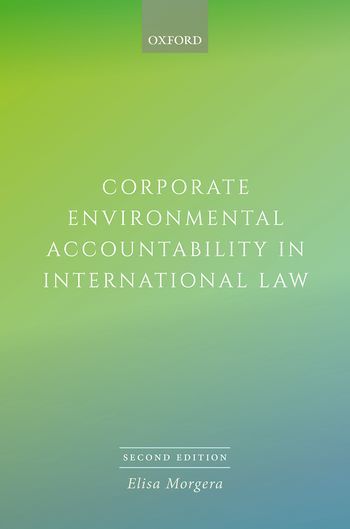
This fully updated second edition of Corporate Accountability in International Environmental Law examines systematically all international sources of corporate accountability standards with specific reference to environmental protection, and elaborates on their theoretical and practical implications for international environmental law. The book argues that although international environmental law does not bind multinational corporations and other business entities, growing practice points to the emergence and consolidation of international legal standards. These standards allow adapting and translating inter-State obligations embodied in international environmental law into specific normative benchmarks to determine the legitimacy of the conduct of the private sector against internationally recognized values and rules.
The role of international organizations who, in the absence of State intervention, identify and promote the application of selected international environmental standards is analyzed in depth. This analysis demonstrates how these international organizations are a driving force in establishing and operationalizing international standards for corporate environmental accountability.
The new edition includes a recent assessment of the Rio+20 Summit, analysis of the UN Framework on Business and Human Rights, and the 2012 Performance Standards. It contains a discussion on the role of 'fair and equitable benefit-sharing' under the Convention on Biological Diversity and international human rights law, and analysis of the monitoring practice of the UN Special Rapporteur on Indigenous Peoples' Rights.